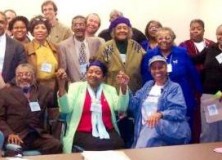November 20, 2014
How a Concentration of Wealth and Political Power Undermines Democracy
by BENJAMIN DANGL
Reprinted from Counterpunch
With a $4 billion price tag, the recent US midterm election was the most expensive in the country’s history. For the first time in eight years, the Republicans gained complete control of Congress, as well as won victories in key Senate and gubernatorial races across the country.
With elections in the US, we are granted the illusion that voters generally have power over our elected leaders, the direction of the economy, and how to tackle climate change and other major issues. But where does the real power lie?
Wealth and political power are so dramatically concentrated in this country that elections have become a bitter farce. The recent midterm vote provides a great opportunity to reflect on the structural ways in which the system is rigged against the people.
The 2010 Citizens United Supreme Court case essentially enabled corporations and billionaires to be able buy US elections and politicians without government oversight. According to David Bossie, the plaintiff in the case and the president of the conservative Citizens United organization, the court ruling helped the Republicans win this year’s midterms.
The day after the election, Bossie said that Citizens United “leveled the playing field, and we’re very proud of the impact that had in last night’s election.” He said this corporate funding helped the republicans win, and created “a robust conversation, which is what a level playing field allows, really creates an opportunity for the American people to get information and make good decisions.”
Rather than creating a level playing field, Citizens United gives disproportionate power to corporations and elites to decide elections. Meanwhile, most voters are left disempowered on the sidelines, pawns in elections that are largely fueled by clandestine corporate money.
With this in mind, it’s no surprise that among the world’s ten richest people are the conservatives Charles and David Koch. The infamous Koch brothers are major funders of the Tea Party, and spent an estimated $290 million to aid in Republicans’ election in the recent mid-term, helping to put out some 44,000 political ads in an attempt to place the Senate back into Republican hands.
The Koch brothers’ reach is wide and disastrous; much of their wealth is from the oil industry, and they are fierce proponents of the controversial Keystone XL Pipeline. If the pipeline goes through, the brothers are set to profit an estimated $30 billion.
As a result of Citizens United, “this election is turning out to be kind of the Wild West,” political reporter Lee Fang told Democracy Now during the recent election day. “Not only are campaign entities raising and spending unlimited amounts, much of it in secret, but we have no cop on the beat, we have no enforcement of election law…”
The impact of Citizens United corresponds to a widely-shared view that the US is indeed not a democracy. In fact, this perception was confirmed in a research study released earlier this year by professors at Princeton and Northwestern University.
Their research found that the wealthy and business elites of the nation wield all of the power, leaving most people on the margins. The report explained, “When a majority of citizens disagrees with economic elites and/or with organized interests, they generally lose. Moreover, because of the strong status quo bias built into the US political system, even when fairly large majorities of Americans favor policy change, they generally do not get it.”
This concentration of political power is reflective of the global concentration of wealth. The 85 richest people in the world now have the same wealth as the 3.5 billion poorest. That was one of the findings of a report from UK-based Oxfam International, which also concluded that the wealthiest 1% of the global population owns roughly half of the world’s wealth. Inequality is rising most rapidly in the US, where the richest 1% have benefitted the most from economic growth since 2009. During that same period, the poorest 90% in the US became poorer.
“This massive concentration of economic resources in the hands of fewer people presents a significant threat to inclusive political and economic systems,” the Oxfam report stated.
Just as most of the world’s wealth is in the hands of a few people, according to a recent article in the academic journal Climatic Change, two-thirds of man-made global warming emissions were produced by just 90 companies, with Chevron, Exxon and BP leading the list as the biggest polluters. Half of these emissions were from the past 25 years.
“There are thousands of oil, gas and coal producers in the world,” Richard Heede, the author of the journal article, told the Guardian. “But the decision makers, the CEOs, or the ministers of coal and oil if you narrow it down to just one person, they could all fit on a Greyhound bus or two.”
Confronting climate change requires a systemic transformation of how our economies are run and who runs them. Part of this radical change will involve disempowering the global 1% and the disaster-producing industries they profit from.
Across the US, we are living in a dream state; crisis is the new normal. In the face of global catastrophe, the leading political parties of the country typically offer more business as usual, meaning more corporate power to fuel democracy, more capitalism to fight inequality, more war to fight for peace, and more pollution to fight climate change.
We cannot depend on the 1% of the world to lead us away from disaster – they caused our global crises in the first place, continue to profit from them, and cannot bring about solutions from the top-down. It has to be the people’s movements leading the way from below, deconstructing capitalism and building a better world from the bottom-up.
This article originally ran on TeleSur.
Benjamin Dangl has worked as a journalist throughout Latin America, covering social movements and politics in the region for over a decade. He is the author of the books Dancing with Dynamite: Social Movements and States in Latin America, and The Price of Fire: Resource Wars and Social Movements in Bolivia. Dangl is currently a doctoral candidate in Latin American History at McGill University, and edits UpsideDownWorld.org, a website on activism and politics in Latin America, and TowardFreedom.com, a progressive perspective on world events.




